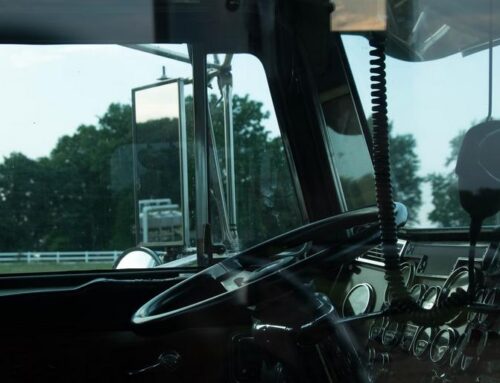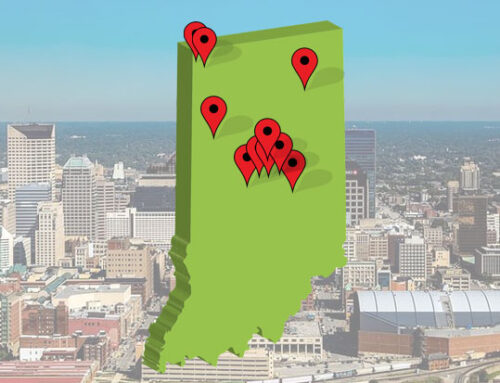William W. Hurst, Indiana Injury Lawyer
It is warming up which means that many sports seasons will be starting up 
Each year, nearly 40,000 golfers are admitted to emergency rooms after being injured at play, most by errant golf balls and flying club heads. Many of these injuries are caused by inexperienced or novice golfers so it is important that you do everything you can do to protect yourself while on a golf course because often it is difficult to tell which golfers have more experience.
Indiana Cases
Recently, Indiana Courts have limited a plaintiff’s recovery in a golf related injury case. Pfenning v. Lineman, 947 N.E.2d 392 (Ind. 2011). In Pfenning, The Indiana Supreme Court issued an opinion on a case involving a golfing injury. In Pfenning, the Plaintiff, a minor, was struck in the mouth by a golf ball while operating a beverage cart at a golf outing. She filed suit against the golfer who hit the ball and struck her, the tavern that promoted the event, the fraternal lodge that owned and operated the golf course, and her grandfather who brought her to the event. The Supreme Court ultimately upheld the dismissal against the golfer that struck the ball and the property owner (fraternal lodge) but held that there were some issues precluding dismissal against grandfather and the tavern. In doing so, the court created a new standard regarding sporting activities:
There are three principal elements in a claim for negligence: duty, breach of duty, and a proximately caused injury. When there is no genuine issue of material fact and any one of these elements is clearly absent, summary judgment is appropriate. But rather than focusing upon the inherent risks of a sport as a basis for finding no duty, which violates Indiana statutory and decisional law, the same policy objectives can be achieved without inconsistency with statutory and case law by looking to the element of breach of duty, which is determined by the reasonableness under the circumstances of the actions of the alleged tortfeasor. We hold that, in negligence claims against a participant in a sports activity, if the conduct of such participant is within the range of ordinary behavior of participants in the sport, the conduct is reasonable as a matter of law and does not constitute a breach of duty. In any sporting activity, however, a participant’s particular conduct may exceed the ambit of such reasonableness as a matter of law if the “participant either intentionally caused injury or engaged in [reckless] conduct.” Such intentional or reckless infliction of injury may be found to be a breach of duty.
Pfenning v. Lineman, 947 N.E.2d 392, 404 (Ind. 2011). Therefore, if you are struck by an errant golf ball while golfing in the State of Indiana or similar jurisdiction and it causes a serious or traumatic injury you may not be able to recover from the individual that hit the ball and/or the course owner and operator. In most cases, those will be the only two parties against who you may have a cause of action so be sure that you are familiar with the Course and your surroundings as you are golfing.
Another scenario that sometimes comes up is bringing suit against a golf course due to either the design or maintenance of their course. Cases such as these are often unsuccessful in Indiana. In the case of Lincke v. Long Beach Country Club, 702 N.E.2d 738 (Ind. Ct. App. 1998) the court held:
Golfer who injured while standing in rough when he was struck by a ball hit by golfer playing another hole sued country club for failure to maintain golf course in reasonably safe condition… The Court of Appeals… held that evidence did not establish that configuration of parallel holes was dangerous or that country club had knowledge that layout was dangerous.
Statistics
A study from several years ago suggests that approximately 60% of professional golfers along with 40% of amateur golfers have suffered either a traumatic or overuse injury. Even with these statistics, golf is seen as a “low-risk” sport that men and women can continue to participate in well into their 50s, 60s, and even 70s. Still, even as a low-risk sport, in 2009 alone there were over 55,000 visits to hospital emergency rooms. Therefore, even though it can be considered relatively safe there are certain things that a participant or spectator can do to protect themselves while on the golf course.
How to Avoid Injury on A Course
Some things that you can do to avoid injury at or while golfing include paying close attention to the ball when you see or hear a hit so you can react to a close call. Listening is important too because you can generally hear a “Fore” on the golf course. If you are golfing try to stay in your cart unless you are swinging your club or warming up and never hit the ball if you can see that the people in front of you are close enough to get struck by a ball. The most important thing that you can do is to pay attention to your surroundings and be vigilant to avoid a serious injury.




